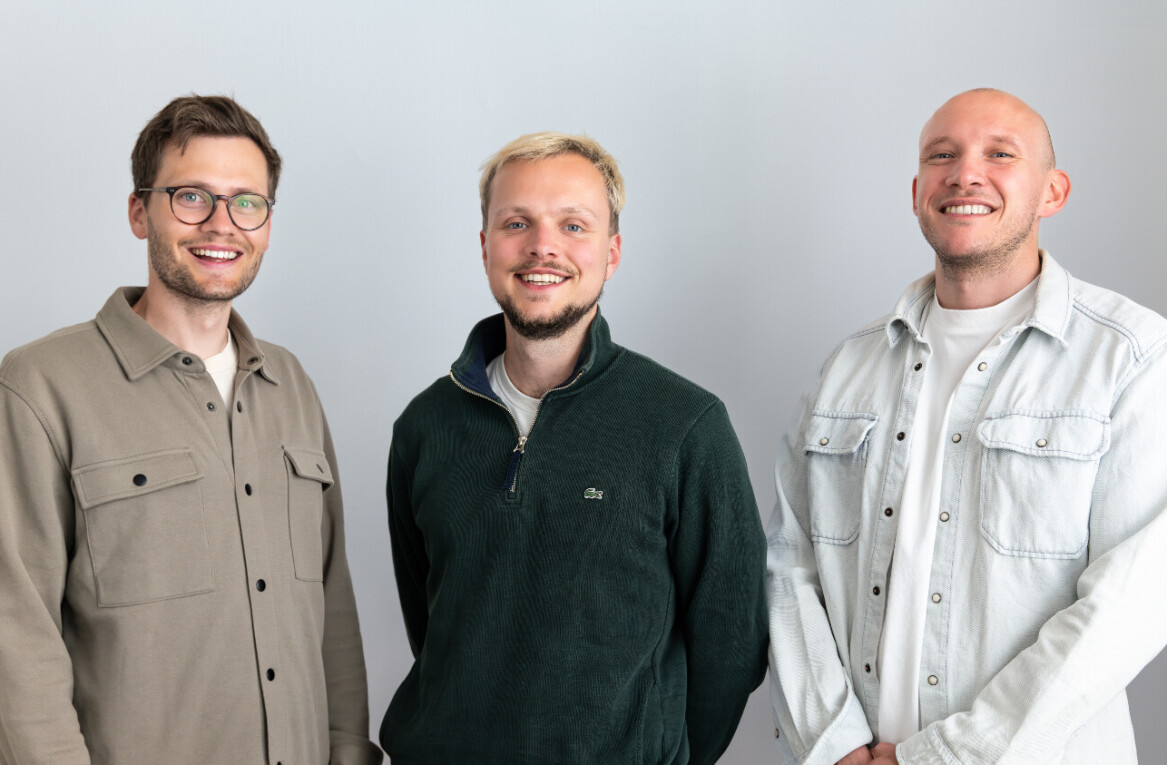
What do AirBnB, Gustin, Square, and Valve all have in common? The answer is that they are highly successful Exponential Organizations (ExOs) – and they are here to change the way we do business forever.
ExO’s are the catalysts forcing us to completely reevaluate the way we run our companies. They use lean methodologies and have dynamic organizational structures to grow both rapidly and sustainably. Coupled with their use of scalable strategies, exponential technologies, and crowdsourced solutions, ExOs achieve an output that is at least 10 times greater than their traditionally run peers.
The term “exponential organization” was coined in 2014 by Salim Ismail, Michael S. Malone and Yuri Van Geest in their book Exponential Organizations: Why New Organizations Are Ten Times Better, Faster, Cheaper Than Yours (and What to Do About It).

It’s not just new companies that have achieved outstanding results with this approach; on the contrary, two enormously successful legacy enterprises, Coca Cola and GE, have looked to ExOs for inspiration and applied their principles to great effect. It is my plan to help your company do the same.
But first, what makes an ExO different?
In the past, soundly structured, hierarchical enterprises held the upper hand when it came to steady growth and solid profits. Today, however, the stability and rigidity of these organizations has become unwieldy and inflexible in the face of more agile competition and evolving technology.
Unlike traditional organizations, ExOs are not hierarchical. Online retailer Zappos, for example, recently dropped its linear organization, and instead opted for a “circles” system. This structure, while not completely flat, distributes responsibility and decision-making among the staff when they would more traditionally be taken on by an executive team.
This approach is linked to the Lean Startup Methodology – one of the key strategies employed by ExOs. As the Zappos example demonstrates, this sanctions ExO employees to make autonomous decisions and take calculated risks, in order to find solutions for specific company challenges. By focusing on particular problems, it encourages employee independence; moreover, this contextualized experimentation facilitates innovation and new ways of doing things.

Computer games company Valve is an extremely successful ExO following this lean model. Like Zappos, it’s also a company with no managers – and it’s not afraid of its employees taking risks either, considering failure to be a learning opportunity for them. To underline the point, Valve’s organizational handbook is subtitled, “A fearless adventure in knowing what to do when no one’s there telling you what to do.”
Although it seems like a big change for most enterprises – it really does seem to work. Valve reportedly earns more per employee than either Google or Apple and is growing at 200 percent year-on-year.
ExOs like Valve and Zappos are strategically set to scale their operations and grow in a digital economy worth more than $300bn in the U.S alone.
Where does change come from?
For ExOs the inspiration for innovation often comes from external sources. Gartner reports that by 2017 more than 50 percent of consumer goods manufacturers will use crowdsourced solutions for 75 percent of their consumer innovation and R&D capabilities – and there’s a good reason for this.
ExOs see customer feedback and engagement as essential resources to leverage, and therefore reach out to, their clients and attempt to build a community. This creates a communication loop that allows companies to validate their ideas and seek improvements. Fisher Price is an example of a well-established company that has adopted this exponential approach of using crowdsourcing to improve their products.

However, these methods don’t only leverage ideas and communities, but also physical resources and funding. Take Gustin for example – this is a line in premium menswear that designs products, asks for backers, and then produces the item once the campaign goal has been reached.
For the company, this guarantees that a product will sell – as clients pledge their payments before the product has been released. Customers only pay when the funding goal has been reached, which of course avoids the company having to refund backers if the campaign fails.
What’s more, ExO’s are far less likely to own their assets, and instead choose to outsource and rent. This helps keep costs and commitments to a minimum. For example, the innovative payment device Square was prototyped at Techshop without the need for the company to purchase expensive machinery – and now it’s valued at $5billion.
Change also comes from problem-solving. ExO AirBnB is arguably even more impressive – it doesn’t own any hotels, yet it is available in more than 190 countries and has grown 750 percent since 2009. The company started off as small as could be when two friends Brian Chesky and Joe Gebbi decided to build their own website with the aim of making a little extra cash by renting out their San Francisco loft to conference goers.

They would provide a place to sleep and breakfast in the morning for $80. After receiving three renters, the pair began to get requests – many asking when the service would be available in other cities around the world. That’s when inspiration struck: their problem-solving idea was a solution for a lot of people in diverse locations. The company has grown from that $240 in 2007 to a staggering $10 billion today. Not bad for a couple of guys, a website, and a scalable idea.
What did Coca Cola and GE do?
Although these companies are hardly new, they have both looked to ExOs to gain an insight into lean efficiency and explosive new growth strategies.
GE has implemented the successful FastWorks, an entrepreneurial framework based on lean principles, which is designed to deliver products that meet a customer’s requirements quickly. To briefly summarize their approach: engineering teams working under FastWorks have continual feedback from their clients and the staff involved have authority to make autonomous decisions.
This is a far cry from the traditional approach of strictly following managerial direction and asking for client feedback at the end of the production process. The new approach keeps projects aligned with client expectations, and improves efficiency and speed.
As a result, GE have sold twice the number of units as normal under FastWorks, at twice the speed, and at half the cost.

Coca Cola’s objective was to learn about and implement lean principles in order to facilitate innovation driven exponential growth, rather than the incremental growth the company is already very good at achieving. The company started Coca Cola Founders – a movement that builds on lean principles in order to help create and launch new startups, such as Home Eat Home, Tobuy and Truu Mobile, among others.
Three ways your business can implement exponential strategies
No matter how stable or successful a business is right now, when you look at the prognosis for a Fortune 500 company, you might start to think that change is needed. I was shocked to read that an estimated 40 percent of Fortune 500 companies will disappear within a decade.
Understandably, well-established businesses (of any size) often stop innovating when they get comfortable. They fall into the trap of trying to defend their position in the market, rather than putting their energy and resources into growth and evolution – and right there, they have lost their startup mentality. For this reason, I think it’s important for owners of businesses both big and small to sit up and take notice, before the future takes over.
No one is arguing that change is easy, or that you’ll become the next AirBnB, but if legacy companies like Coca Cola and GE are able to adopt exponential principles to their advantage, then your business can too.

-
My first piece of advice is to look to startups to inspire new modes of thinking and action. Startups tend to grow quickly with limited resources. Look again at Gustin as an example; it only produces products that have definite backing and guaranteed sales. Could your business leverage crowdsourcing in this way?
-
You should engage in innovative experiments. Look again at GE’s FastWorks and how they streamlined their processes by removing permission loops. By giving their employees autonomy to make project-focused decisions, things went twice as quickly. Can you follow GE and bring your clients further into the equation? Customer feedback at every stage of the process helped the enterprise produce a product that had twice the average number of sales.
-
Look at your problem points and evaluate how exponential technologies can be leveraged across every facet. This technology can help your team to be more efficient, to solve workflow problems, and can introduce new and far more productive ways of working together and delivering solutions. Consider everything from machine learning and 3D printing, to drones and algorithms.
I’m going to conclude with one last statistic about the Fortune 500 – I’ll warn you, it’s not a good one.
89 percent of the companies that existed in the Fortune 500 in 1955 have now disappeared. They couldn’t keep up with the trends. These companies couldn’t innovate fast enough. They should have been looking to the future; at their challenges and opportunities. It’s the same for enterprises today: our future is exponential – and we need to evolve in order to survive.
Read Next: A 6-step survival guide for non-technical founders
Image credit: Shutterstock
Get the TNW newsletter
Get the most important tech news in your inbox each week.




